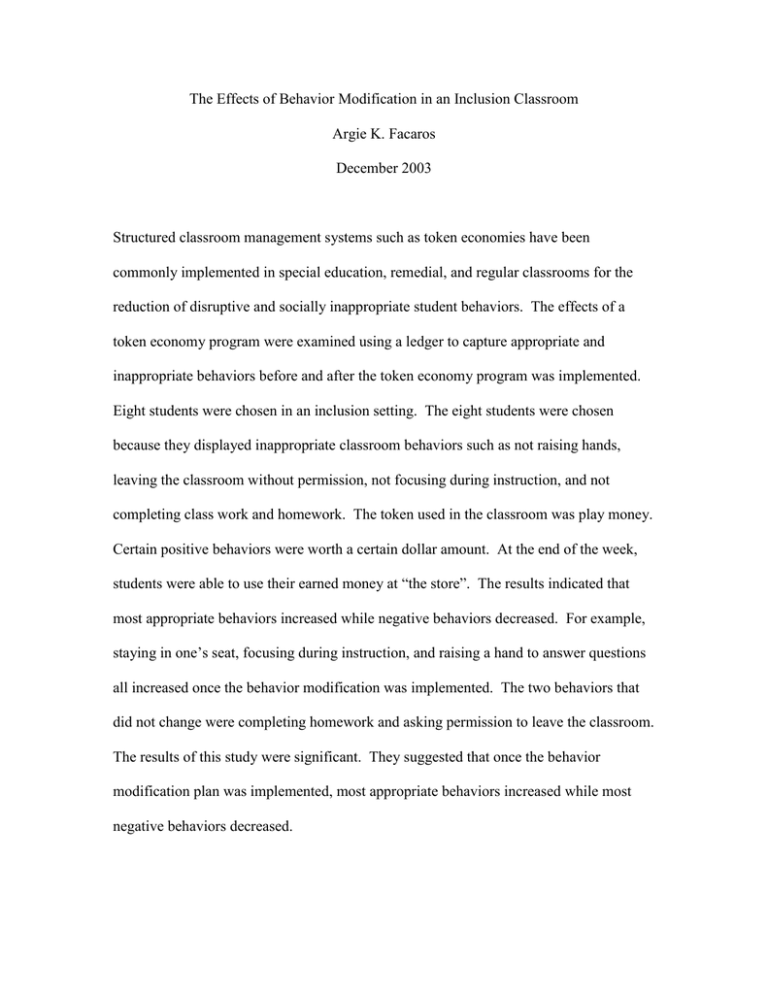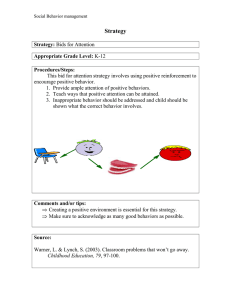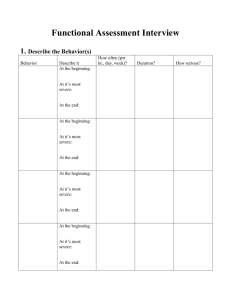The Effects of Behavior Modification in an Inclusion Classroom December 2003
advertisement

The Effects of Behavior Modification in an Inclusion Classroom Argie K. Facaros December 2003 Structured classroom management systems such as token economies have been commonly implemented in special education, remedial, and regular classrooms for the reduction of disruptive and socially inappropriate student behaviors. The effects of a token economy program were examined using a ledger to capture appropriate and inappropriate behaviors before and after the token economy program was implemented. Eight students were chosen in an inclusion setting. The eight students were chosen because they displayed inappropriate classroom behaviors such as not raising hands, leaving the classroom without permission, not focusing during instruction, and not completing class work and homework. The token used in the classroom was play money. Certain positive behaviors were worth a certain dollar amount. At the end of the week, students were able to use their earned money at “the store”. The results indicated that most appropriate behaviors increased while negative behaviors decreased. For example, staying in one’s seat, focusing during instruction, and raising a hand to answer questions all increased once the behavior modification was implemented. The two behaviors that did not change were completing homework and asking permission to leave the classroom. The results of this study were significant. They suggested that once the behavior modification plan was implemented, most appropriate behaviors increased while most negative behaviors decreased.

